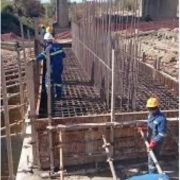The Zimbabwe Lawyers for Human Rights says that government should refrain from undermining democracy while violating provisions of the constitution which was signed 8 years ago and has not been fully implemented by the authorities.
ZLHR states that recent amendments to the constitution significantly weakened the independence of the judiciary, participatory democracy, and the separation of powers.
President Mnangagwa signed the controversial Constitutional Amendment No 2 Bill into law, which gave effect to 27 changes to the Constitution and giving him unfettered powers over the Judiciary and Parliament.
The bill was signed despite opposition from civic organisations and lawyers who intended to challenge the way the Bills sailed through Parliament.
On the eighth anniversary of the Constitution of Zimbabwe ZLHR said that The Constitution was emphatically endorsed by the public through a referendum in 2013.
The state’s failure to ensure that all the provisions are implemented undermines the Constitution’s authority as the supreme law and flouts tenets of democracy.
The late former President Robert Mugabe signed a new constitution into law in 2013, replacing a 33-year-old document forged in the dying days of British colonial rule.
The constitution was approved overwhelmingly in a referendum in March while clipping powers of the president.
In a statement, the ZLHR said, “ The Constitution came into force 8 years ago on 22 May 2013 but it has not yet been fully implemented by the authorities. The failure to give effect to all of the provisions of the Constitution amounts to a flagrant disregard of the wishes of the public that are embodied in the Constitution.”
“ We urge the government to respect the will of the people by fully implementing all provisions and refraining from passing amendments that undermine the founding values of Zimbabwe’s constitutional democracy.”
ZLHR added the recently passed Constitution of Zimbabwe Amendment (No.2) Act, 2021 (No.2 of 2021) introduced changes that significantly weakened the independence of the judiciary, participatory democracy, and the separation of powers.
The Bill seeks to remove a clause on running mates, empower the president to appoint and extend the tenure of judges beyond 70 years and extend the women’s quota.
While ZLHR is greatly concerned by the removal of public interviews from the selection process of judges of the higher courts and the introduction of a clause which allows the President to extend the tenure of Supreme Court and Constitutional Court judges beyond the previous retirement age of 70 years.
“ZLHR also calls upon the state to desist from violating provisions of the Constitution the authorities recently purported to extend the tenure of the former Chief Justice Luke Malaba, in contravention of section 328(7) of the Constitution which states that an amendment of a term-limit of any public official cannot benefit any person who occupied that office before the amendment.”
Posted in CURRENT NEWSGENERAL NEWS
MDC Alliance Vice President Tendai Biti has been reinstated back to parliament as representative of his Harare East constituency.
Now that the court has ruled in his favor , he is the bonafide member of parliament and that settles it .
High Court Refers Muchenje To Labor Court
High Court judge Justice Muremba ruled that the country’s high court has no jurisdiction, as a court of first instance, in labor issues, in the case where NetOne CEO Lazarus Muchenje was challenging his termination on Notice by NetOne.
Muchenje who had challenged this third attempt to dismiss him in twelve months by the NetOne Acting Chairperson Susan Mutangadura was referred to the labour court by the High Court.
Justice Muremba found that based on the Nhari Judgement, issued in late 2020, labour issues should be dealt with by the labor court as court of first instance.
Here is the full court document by Justice Muremba
Justice Muremba did not deal with any of the substantive matters as she ruled that the High Court had no jurisdiction.
NetOne under Susan Mutangadura suspended Muchenje in February 2020, and Muchenje approached the High Court , challenging the unlawful process NetOne had followed, and he was granted an interim interdict by the High Court.
NetOne then withdrew all charges against Muchenje and reinstated him in July 2020, only to dismiss him for no cause the next day, just citing that they are terminating him on three months notice for no fault.
Muchenje challenged this termination in the High Court and was granted an interim order against NetOne.
In December Ms Mutangadura again reinstated Mr Muchenje and immediately terminated his contract on three months notice.
It appears that NetOne had learnt of the Nhari judgement which took jurisdiction away from the High Court ,as a court of first instance for labor issues, and in their quest to get Muchenje out of NetOne, had connived to bring him back and terminate again, knowing that the High Court, after the Nhari judgement, would send the matter to the labor court, where it can take years before being attended to.







Comments